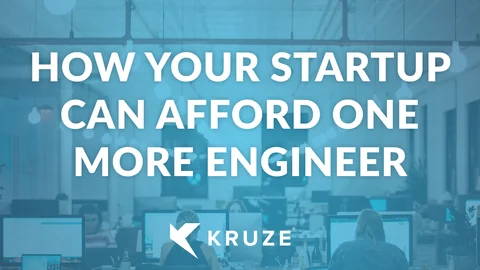
If you’re a startup, money is often tight – you want to get the most you can out of your venture capital. And one way you can stretch those dollars is through proper cash management, which could generate enough yield to pay for one more engineer for your company.
Hiring just one more engineer at your startup can be like finding the holy grail. Another resource working on your startup’s products could improve your product, help you hit your milestones, and increase your chances of success.So how can you find those funds?
Cash management could help your bottom line
If you do your cash management properly, you can pay for that engineer, or even more, depending on how much cash you have on the balance sheet.
Interest rates are increasing (the time of recording is late September 2022). The problem is that a lot of startups still have their cash in their bank accounts. This means they are probably earning around 0.5% - 1% interest.
It’s a little-known fact, but to help your startup’s situation you can definitely negotiate with your bank. You have two options here:
- Tell the bank you want higher interest on your savings.
- Put your cash in a money market account and make sure that it is getting the best yield.
As you’re reading this blog, banks are paying around 2% for savings/money market accounts as interest rates go up.
Check the numbers
Let’s do the math assuming you have $10 million (which is a lot of money, but the majority of our clients at Kruze Consulting have $10 million in the bank). Increasing your interest rate from 0.5% to 2% means 1.5% more interest that you could be making every year. If you multiply that by $10 million, voilà, you have $150,000.
Although that amount might not pay for a senior engineer, that is enough to hire a junior engineer. And there are other cash management strategies you can use to generate more yield.
The money market savings account is just a baseline. It is the quickest and easiest first step towards good cash management that a startup’s founder or CEO can do, and you can keep going from there.
Other Cash Management Tools
There are other services, such as automated cash management tools, you can use. The critical thing to remember is that preserving your capital is your most important goal as a fiduciary of your startup. So you should only consider very safe and stable investments.
Your bank may well have a cash management or treasury management department that would be happy to advise you on options, and might be able to suggest investment vehicles with higher yields. For example, at the time of this recording (September 2022) the three-month Treasury bill is yielding 3.25% and that is a very safe investment. Treasury bills are short-term securities issued by the US government and can be sold in terms that range from a few days to a year. Some additional numbers:
- 3-month T-bill is at 3.25% on an annualized basis
- 6-month T-bill is at 3.8%
- One-year T-bill is at 4%
Based on these data points, a traditional money management tool for startups would be a bond ladder, where you buy a portfolio of bonds with different maturity dates. So you might put 50% of your capital in a 3-month T-bill, another 25% in a 6-month T-bill, and the remaining 25% in a one-year T-bill. You need to correlate your bond ladder with how much cash you are burning and when you are going to need the money.
You can easily get to a yield of 3.5% - 3.75% with a bond ladder, still be super safe, and still have plenty of money from those bonds to fund your operating expenses. This means you could go from 50 basis points up to 3.5-3.75%, and that is a huge jump. It could be anywhere from $300,000 to $325,000 (assuming you have $10 million in the bank), and the next thing you know, you are welcoming your new engineer!
Explore your options
You can play with the math as much as you like (and we encourage you to do so, particularly if you enlist the aid of your bank’s cash management team). The fact is, your startup may be able to generate a lot more money with a strong cash management plan. It could easily pay for at least one engineering salary, possibly even two, and it is also just a good thing to do from a fiduciary perspective.
By investing in a very safe vehicle, such as treasuries, money markets, or just the savings account at your bank, you’re not taking a lot of risk. This will keep your investors happy and you will be able to hire that elusive, extra engineer that every single startup needs. If you have other questions on cash management, startup accounting, taxes, or venture capital please contact us.
You can also follow our youtube channel and check our blog for more information on accounting, finance, HR, and taxes for startups!








